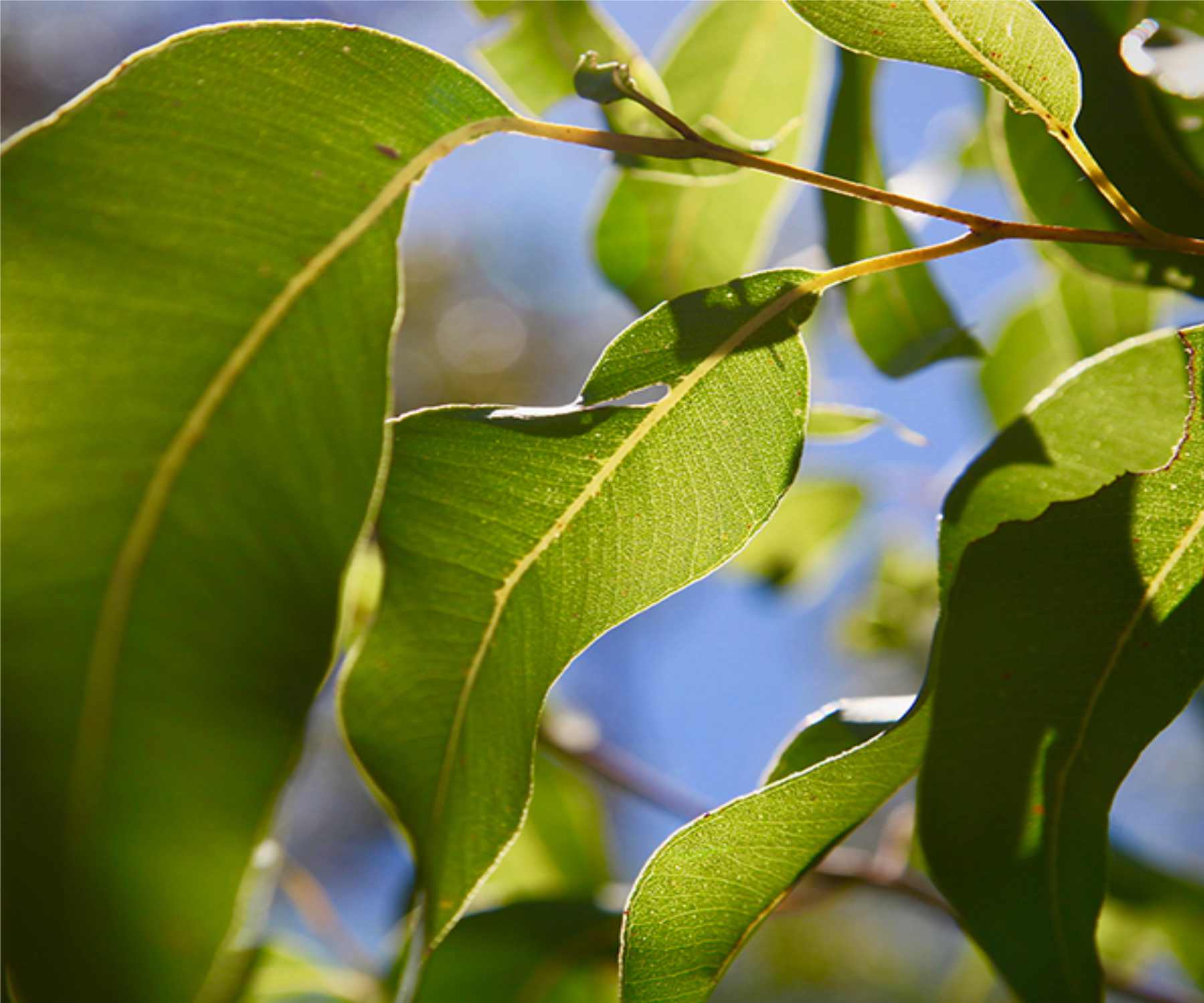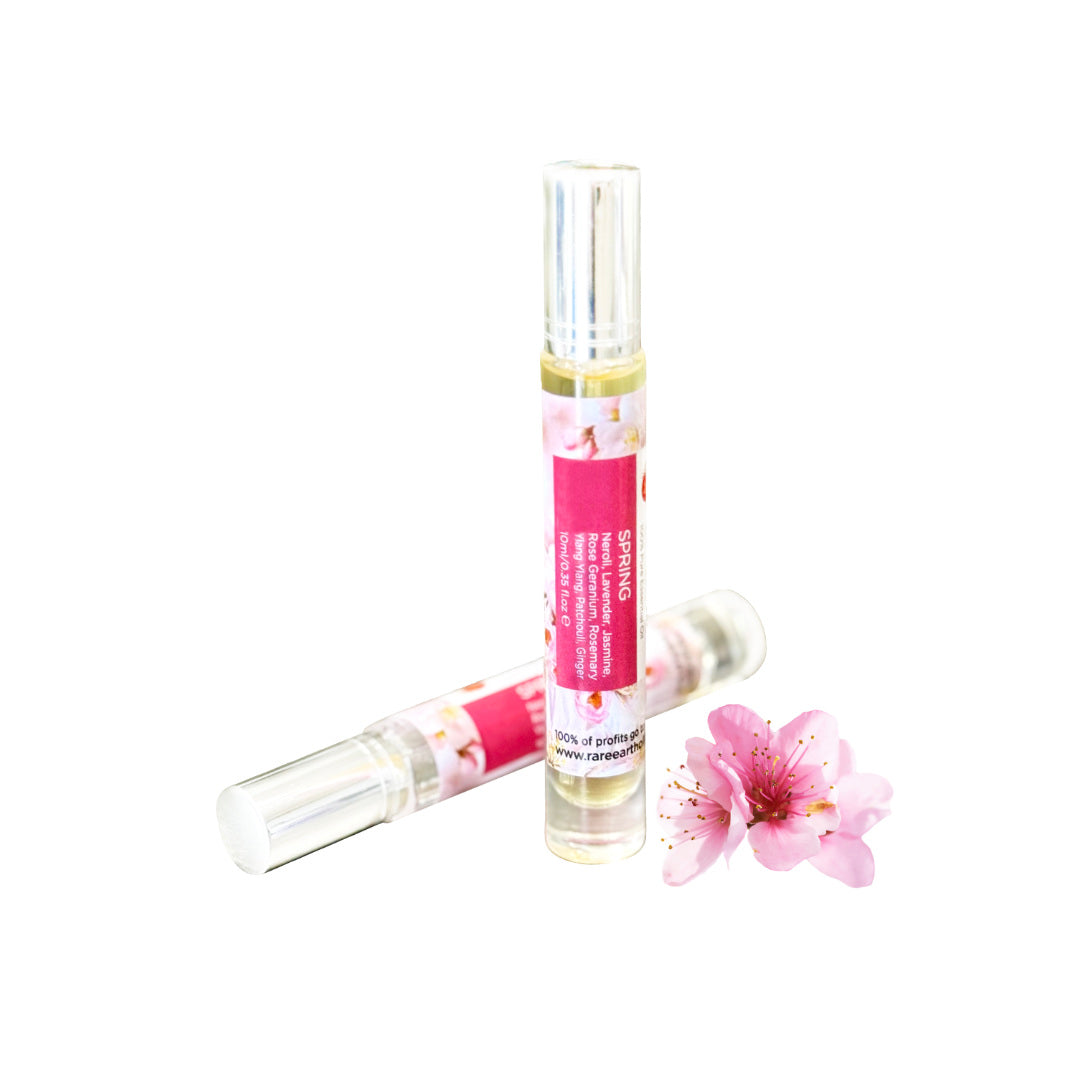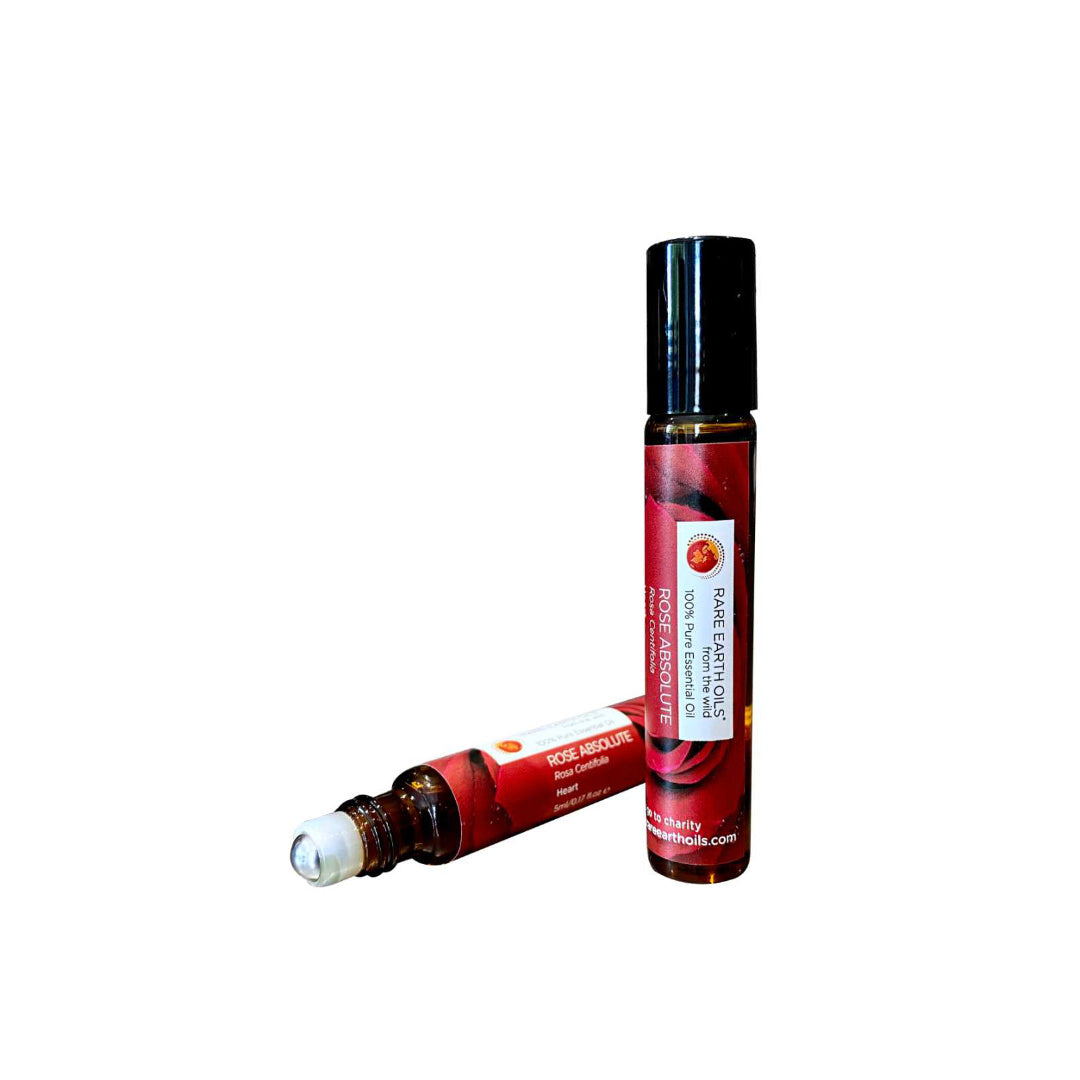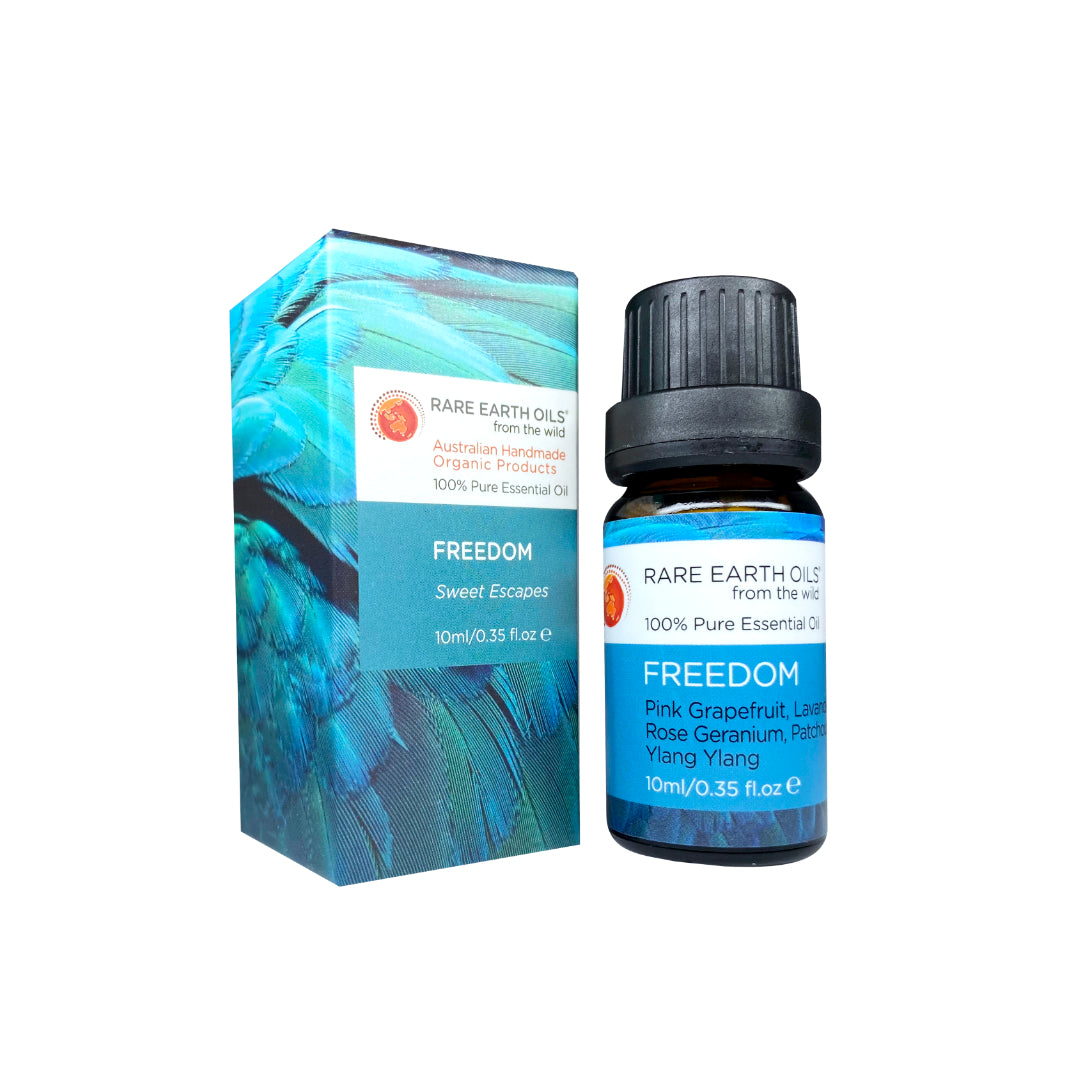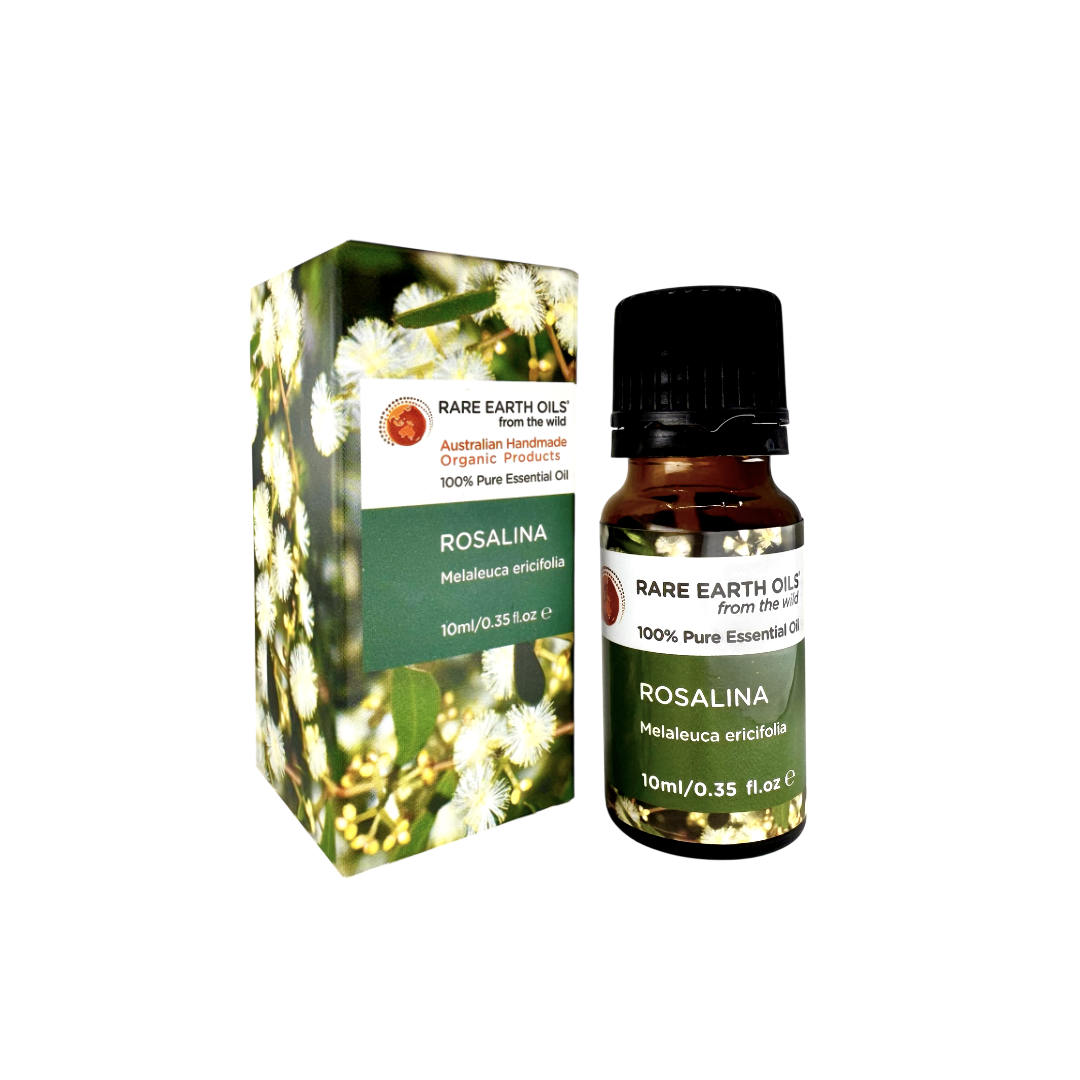
Rosalina
Rosalina has a distinctive aroma that combines the freshness of the tea tree family with gentle, floral highlights, grounded by earthy, subtle woody undertones.
Rosalina’s herbaceous notes are offset by its soft floral notes; largely due to its high linalool content, a compound also prominent in lavender.
Botanical name: Melaleuca ericifolia
Aroma: Fresh herbaceous notes with gentle, floral highlights, grounded by earthy, subtle woody undertones.
Note: Middle/Top
Status: Organic
Chakra: Solar Plexus/Third Eye
Method of extraction: Steam Distillation

Aromatherapy
The high content of linalool, a compound also found in lavender, gives Rosalina its soothing and sedative properties. This makes it a great choice for calming nerves and easing the mind after a long day or encouraging restful sleep.
Its ability to calm the mind and relax the body is known to help alleviate irritability and nervousness, promoting a more peaceful and stable emotional state.
While it is a relaxing oil, Rosalina can aid in supporting mental clarity. It is often used in settings that require focus and calm, such as a stressful work environment or a study space. Niaouli has been used to enhance mental clarity, focus, and intuition.
Traditional Uses
Aboriginal people have long used the plant material of various Melaleuca species for medicine.
Rosalina's unique chemical profile, featuring a high concentration of linalool (the compound common in lavender) and 1,8-cineole (a key component of eucalyptus), gives it a wide range of therapeutic benefits that are often considered milder than traditional tea tree oil, a great alternative to use with children.
Respiratory health
- Decongestant: Rosalina's expectorant properties, derived from 1,8-cineole, help to clear mucus from the lungs and sinuses.
- Coughs and colds: It is commonly used via inhalation or diffused to provide relief for cold and flu symptoms.
- Allergies: The oil is used in aromatherapy to provide symptomatic relief from some seasonal allergies, such as hay fever.
Skin health
- Antimicrobial and antibacterial: Its powerful properties help to soothe and treat minor skin infections, acne, and rashes.
- Gentle on sensitive skin: Unlike traditional tea tree oil, Rosalina is less irritating, making it a good option for people with sensitive skin and for topical application on children.
- Anti-inflammatory: It can be used to reduce skin inflammation, and its soothing nature helps calm irritated skin.
Relaxation and sleep
- Sedative and calming: The high linalool content gives Rosalina mild sedative properties, making it an excellent aid for sleep.
- Anxiety and stress: It is used to calm nerves, reduce stress levels, and promote a sense of tranquility.
- Restlessness and irritation: It is particularly helpful for calming restless children or anxious adults.
Pain and inflammation
- Muscle and joint pain: The oil's natural anti-inflammatory properties make it beneficial for easing muscular and joint pain when massaged into the skin.
- Headaches: Inhaling the aroma or applying a diluted amount to the temples can help relieve tension headaches.
Household uses
- Natural cleaner: Its antiseptic and antibacterial qualities make Rosalina an effective natural household cleaner for kitchens, bathrooms, and floors.
Air freshener: The pleasing and refreshing scent makes it a popular choice for use in diffusers to deodorize and purify the air.
Safety
Rosalina oil is non-toxic, non-irritant, some individuals may find it sensitising and should patch test before use, and dilute as needed.
Pregnant women should consult their health professional.
Check for individual allergies.
Keep out of reach of children.
The high content of linalool, a compound also found in lavender, gives Rosalina its soothing and sedative properties. This makes it a great choice for calming nerves and easing the mind after a long day or encouraging restful sleep.
Its ability to calm the mind and relax the body is known to help alleviate irritability and nervousness, promoting a more peaceful and stable emotional state.
While it is a relaxing oil, Rosalina can aid in supporting mental clarity. It is often used in settings that require focus and calm, such as a stressful work environment or a study space. Niaouli has been used to enhance mental clarity, focus, and intuition.
Aboriginal people have long used the plant material of various Melaleuca species for medicine.
Rosalina's unique chemical profile, featuring a high concentration of linalool (the compound common in lavender) and 1,8-cineole (a key component of eucalyptus), gives it a wide range of therapeutic benefits that are often considered milder than traditional tea tree oil, a great alternative to use with children.
Respiratory health
- Decongestant: Rosalina's expectorant properties, derived from 1,8-cineole, help to clear mucus from the lungs and sinuses.
- Coughs and colds: It is commonly used via inhalation or diffused to provide relief for cold and flu symptoms.
- Allergies: The oil is used in aromatherapy to provide symptomatic relief from some seasonal allergies, such as hay fever.
Skin health
- Antimicrobial and antibacterial: Its powerful properties help to soothe and treat minor skin infections, acne, and rashes.
- Gentle on sensitive skin: Unlike traditional tea tree oil, Rosalina is less irritating, making it a good option for people with sensitive skin and for topical application on children.
- Anti-inflammatory: It can be used to reduce skin inflammation, and its soothing nature helps calm irritated skin.
Relaxation and sleep
- Sedative and calming: The high linalool content gives Rosalina mild sedative properties, making it an excellent aid for sleep.
- Anxiety and stress: It is used to calm nerves, reduce stress levels, and promote a sense of tranquility.
- Restlessness and irritation: It is particularly helpful for calming restless children or anxious adults.
Pain and inflammation
- Muscle and joint pain: The oil's natural anti-inflammatory properties make it beneficial for easing muscular and joint pain when massaged into the skin.
- Headaches: Inhaling the aroma or applying a diluted amount to the temples can help relieve tension headaches.
Household uses
- Natural cleaner: Its antiseptic and antibacterial qualities make Rosalina an effective natural household cleaner for kitchens, bathrooms, and floors.
Air freshener: The pleasing and refreshing scent makes it a popular choice for use in diffusers to deodorize and purify the air.
Rosalina oil is non-toxic, non-irritant, some individuals may find it sensitising and should patch test before use, and dilute as needed.
Pregnant women should consult their health professional.
Check for individual allergies.
Keep out of reach of children.

